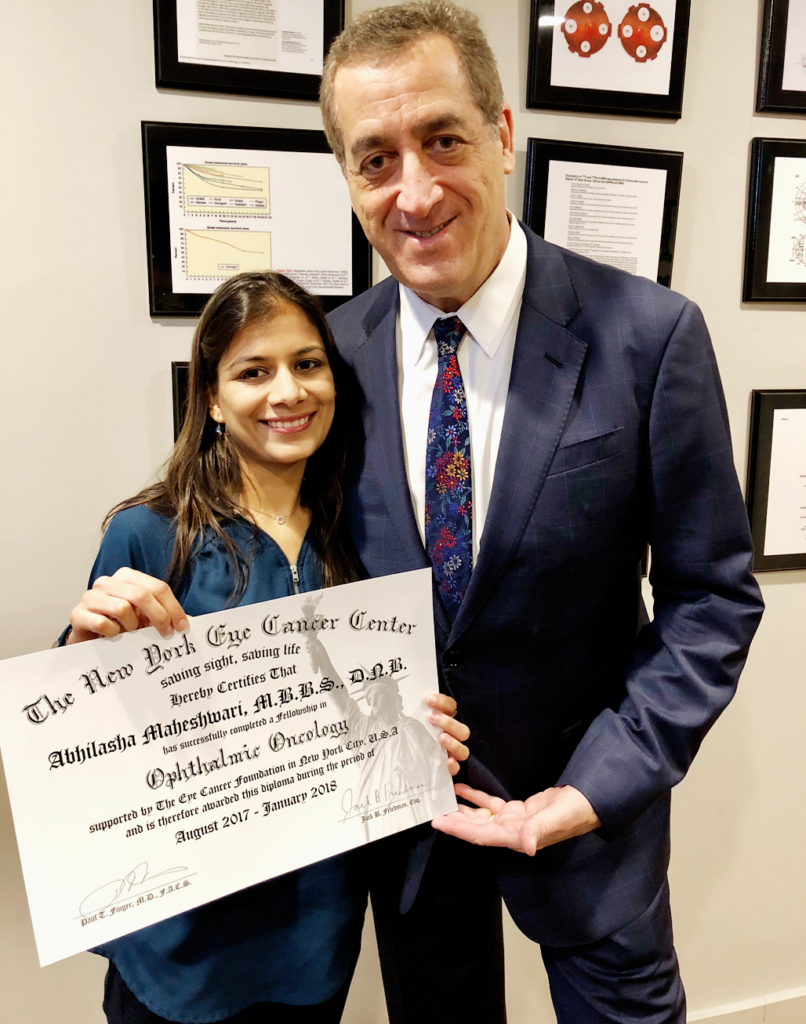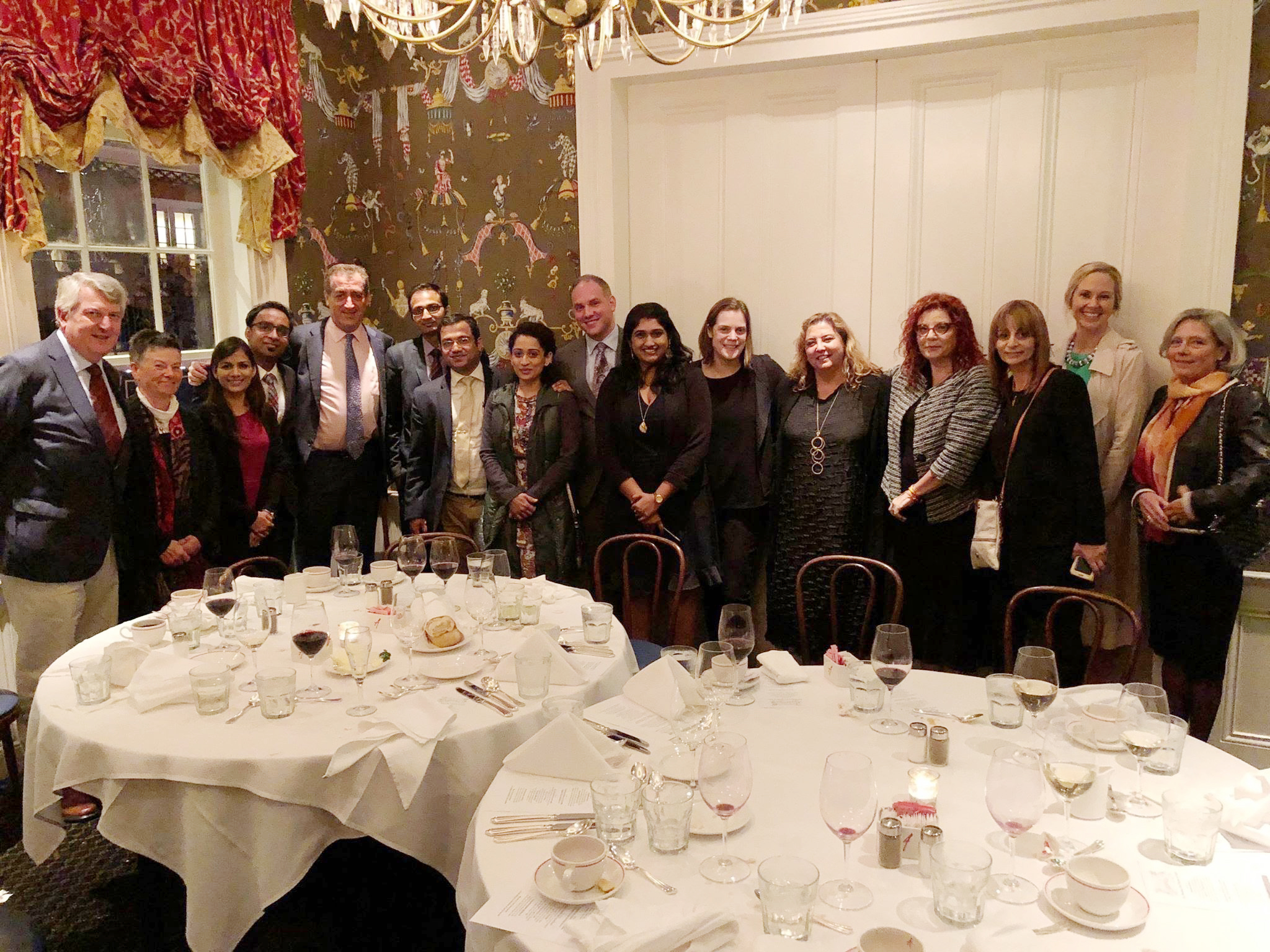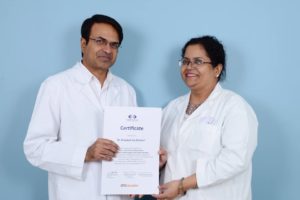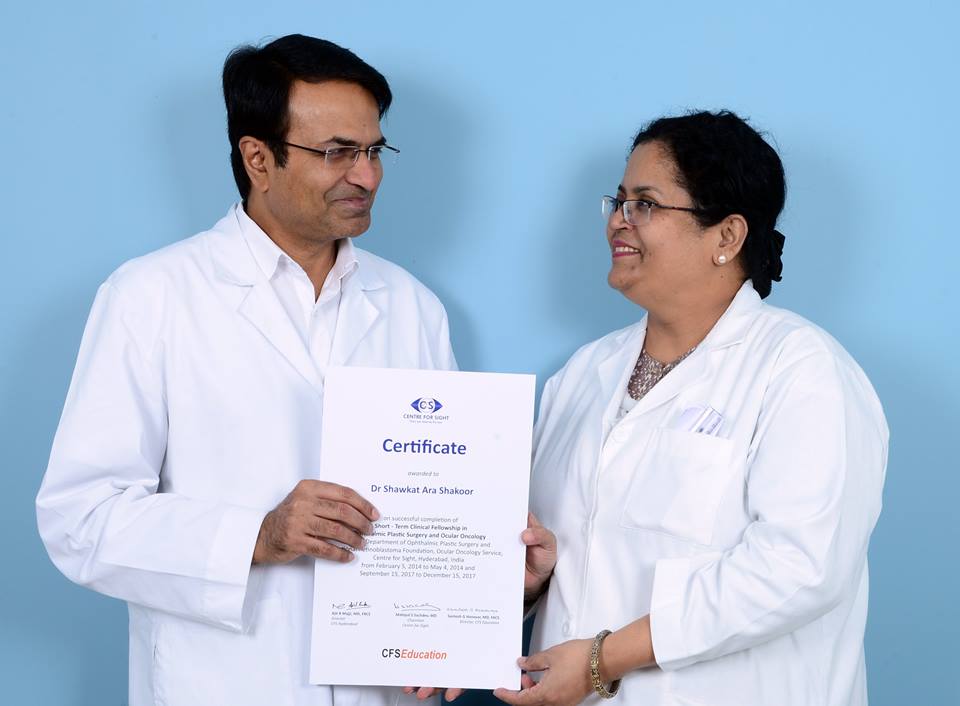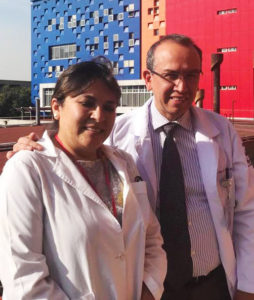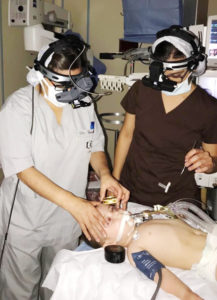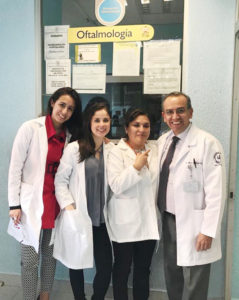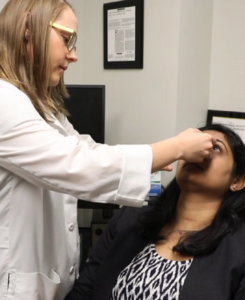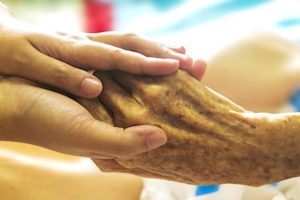From India to the Big Apple
At the close of 2017, The Eye Cancer Foundation promised its supporters to continue the momentum of the tremendous strides made throughout the year, and indeed it has with yet another Eye Cancer Foundation Ophthalmic Oncology Fellowship thus completed. Meet the ECF’s latest Fellowship alumnus: Abhilasha.
Abhilasha Maheshwari, MBBS, hails from the bustling northern city of Chandigarh, India, and took a special interest in the treatment of eye cancers early on in her career as a medical student. It was from there that she further ventured into the speciality by training under the world-renowned eye cancer specialist and member of the Scientific Advisory Board for the Eye Cancer Foundation, Dr. Santosh Hanovar at Centre For Sight in Hyderabad, India. For many South Asians, Centre For Sight is vital, due to the unfortunately low amount of treatment centers readily accessible to eye cancer patients within the geographic area. Dr. Hanovar, always eager to progress the eye cancer speciality, had put forth Dr. Maheshwari as a candidate to be further trained in ophthalmic oncology by Dr. Paul T. Finger at the New York Eye Cancer Center and New York Eye and Ear Infirmary. She was accepted for the program, and arrived for her six month fellowship in August 2017.
Apart from embracing the colorful experience of living in an entirely new city, Dr. Maheshwari has aided in a number of Dr. Finger’s groundbreaking projects during her time as an Eye Cancer Foundation Fellow. January 20, 2018 saw the publication of a paper worked on by Dr. Finger and Dr. Maheshwari, which presents a 12-year study of 52 patients with uvueal melanoma treated with low energy photon, slotted eye plaque Palladium-103 radiation therapy. The paper was successfully published in the American Journal of Ophthalmology and presented orally at the November 2017 American Association of Ophthalmic Oncologists and Pathologists (AAOOP) Annual Meeting held in New Orleans, Louisiana.
Additionally, Dr. Maheshwari became the first ECF-ICO Fellow to participate in the DRO Initiative, a program used by the NYECC to report patient outcomes on the web in a patient-accessible format. Her work included anonymously recording these patients into the program for their disease, treatment, visual acuity, tumor stage and height, and more. She has since handed her instructional work to the next NYECC Fellow, and the DRO Initiative continues with outstanding success. To learn more about DRO, click here.
Where is she now? At the end of her fellowship, Dr. Maheshwari returned to India, where she has recently taken up a hospital job and aims to improve patient life, hoping to one day have all of South Asia (which includes Nepal, India, Pakistan, Bangladesh, and Sri Lanka) no longer be an underserved area in the treatment of eye cancer. The ECF plans to keep its supporters updated on all progress made by our alumni, so stay tuned!
To learn more about ECF-ICO Fellowships, including how to apply for one, click here.

